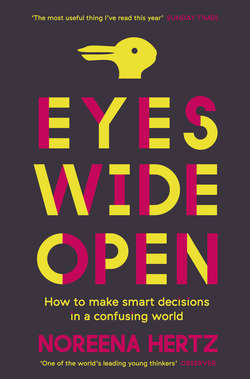Читать книгу Eyes Wide Open: How to Make Smart Decisions in a Confusing World - Noreena Hertz - Страница 10
Drip, Drip, Drip, Ping, Ding, Ring
ОглавлениеAdd to the barrage of data another twenty-first-century form of Chinese water torture – the drip, drip, drip of ‘Continuous Disruption’ – and you’ll be better able to understand the demanding context within which we make our decisions.
In this regard, email is Mental Enemy No. 1. The constant pinging, window signalling or green light blinking, depending which medium it finds you on.
Some saw it coming, saw the inherent problem of a medium which could so easily get out of control.
In 1984, just as email was beginning to enter the mainstream, Jacob Palme, a computer scientist from the QZ Computer Centre at the University of Stockholm with a sideline in writing crime novels, warned that ‘electronic mail system, if used by many people, causes severe information overload problems’.
The cause of this problem [Palme wrote] is that it is so easy to send a message to a large number of people, and that systems are often designed to give the sender too much control of the communication process, and the receiver too little control … In the future, when we get larger and larger message systems, and these systems get more and more interconnected, this will be a problem for almost all users of these systems.10
And so it was that Palme’s prophecy came to be. This is an age of cc and bcc. With the click of a mouse you can send an email to everyone you know. Time and again we find ourselves giving people information they really don’t need. In 2012, more than 204 million emails were sent every minute of every day.11
How many emails do you receive each day? What are all these messages doing to your ability to concentrate, to think, to plan, to decide?
And that’s just emails. Add to this the constant droning background noise of open-plan offices, the rat-a-tat-tat of mobile phones, texts, instant messages, Skype calls, phone calls, the lure of websites demanding your attention, and you’ll start to get the picture. These days, we spend three-quarters of our waking lives receiving information.12 Henry Kissinger built a soundproof office above his garage in which to work, banning his wife or children from entering while he was thinking.13 But most of us can’t physically absent ourselves when we’ve got decisions to make. Instead we have to operate in a state of nothing less than continuous and relentless interruption.
On average, computer users change windows, and check email or another program, thirty-seven times an hour.14 Forty-three per cent of college students say they are interrupted by social media three or more times an hour while they are working.15 And when someone’s trying to reach us nowadays, not only will they email us – they’ll text us, tweet us, phone and voicemail us too. Often it can feel that there is no escape.16
The relentlessness of this bombardment has an impact. A Microsoft Research study which tracked over two thousand hours of employee computer activity found that once distracted by an email alert, computer users take an average of twenty-two minutes to return to the suspended task with the same level of focus.17 In 27 per cent of cases, it took them more than two hours to return to the task they were doing in the first place.18 More recent studies have revealed that tasks take a third longer when interrupted by email.19 Whilst a study of employees at the communications firm Porter-Novelli suggested that the combined effect of incessant phone calls and emails can lead to a temporary drop in our IQ of an extraordinary and disturbing ten points.20
As for open-plan offices, the constant background buzz of other colleagues and office equipment makes us 66 per cent less productive.21 Phones ringing on desks, the background hum of conversations we are not part of, and the chime of emails arriving in our inbox distract and demotivate us at work.22
The drip, drip, drip doesn’t just make us less able to think, it’s also exhausting us. We are spent. Unable to sleep, headaches ever looming, always tired; our bodies cope with these new demands by keeping us, as we will learn, in a constant state of hormone-induced stress.23
Yet we crave these interruptions like catnip. Despite their pernicious impact, we actively seek them out. Forty per cent of people continue to check their work email after hours or while they are on holiday.24 Eighty-six per cent of us use our mobiles while watching TV (this figure rises to 92 per cent for the 13-to-24 age group25). An informal poll of friends reveals a geneticist who checks news sites every five minutes while at work, a TV executive who catches up on his emails on the phone while he’s on the stationary bike at the gym, an art dealer who logs on to the Daily Mail website sixty times a day.
We are addicted,26 stressed and overwhelmed, and it’s often while we are in this state that big as well as small decisions have to be made.
Whether we can be switched on if we remain switched on is a question I will return to.
